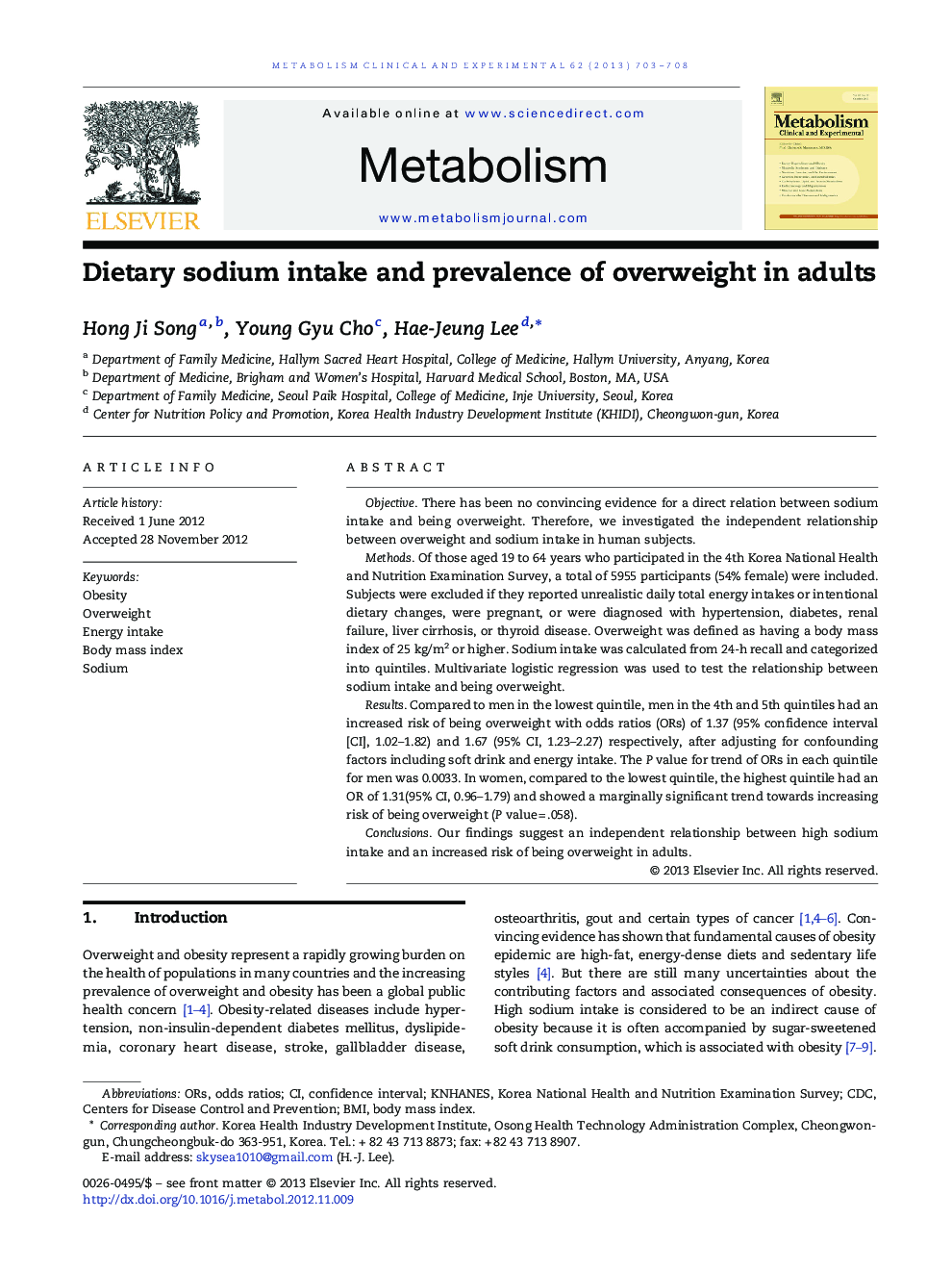| Article ID | Journal | Published Year | Pages | File Type |
|---|---|---|---|---|
| 2805587 | Metabolism | 2013 | 6 Pages |
ObjectiveThere has been no convincing evidence for a direct relation between sodium intake and being overweight. Therefore, we investigated the independent relationship between overweight and sodium intake in human subjects.MethodsOf those aged 19 to 64 years who participated in the 4th Korea National Health and Nutrition Examination Survey, a total of 5955 participants (54% female) were included. Subjects were excluded if they reported unrealistic daily total energy intakes or intentional dietary changes, were pregnant, or were diagnosed with hypertension, diabetes, renal failure, liver cirrhosis, or thyroid disease. Overweight was defined as having a body mass index of 25 kg/m2 or higher. Sodium intake was calculated from 24-h recall and categorized into quintiles. Multivariate logistic regression was used to test the relationship between sodium intake and being overweight.ResultsCompared to men in the lowest quintile, men in the 4th and 5th quintiles had an increased risk of being overweight with odds ratios (ORs) of 1.37 (95% confidence interval [CI], 1.02–1.82) and 1.67 (95% CI, 1.23–2.27) respectively, after adjusting for confounding factors including soft drink and energy intake. The P value for trend of ORs in each quintile for men was 0.0033. In women, compared to the lowest quintile, the highest quintile had an OR of 1.31(95% CI, 0.96–1.79) and showed a marginally significant trend towards increasing risk of being overweight (P value = .058).ConclusionsOur findings suggest an independent relationship between high sodium intake and an increased risk of being overweight in adults.
